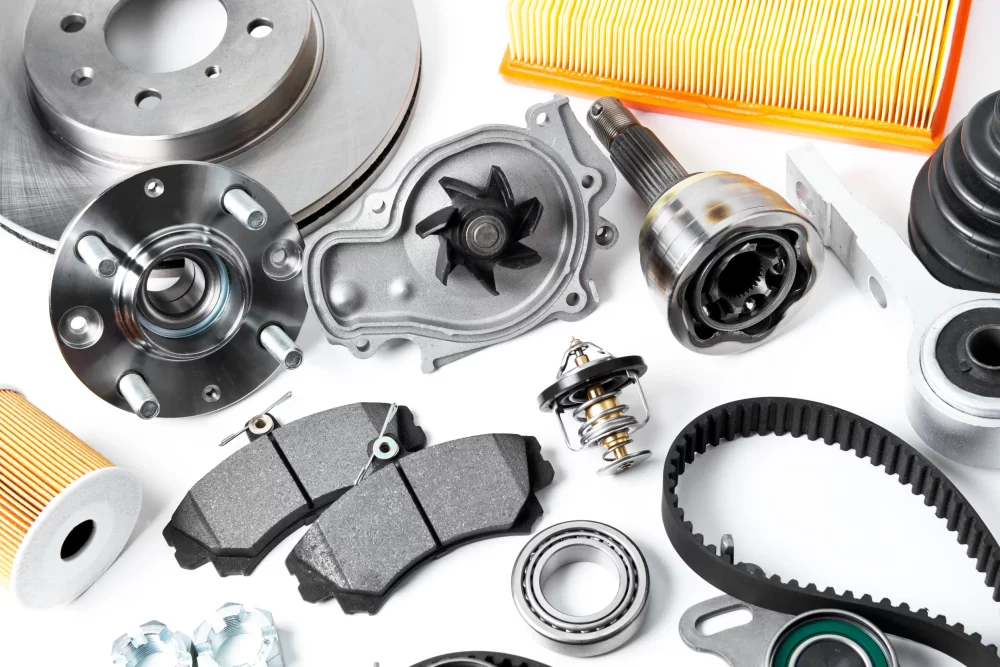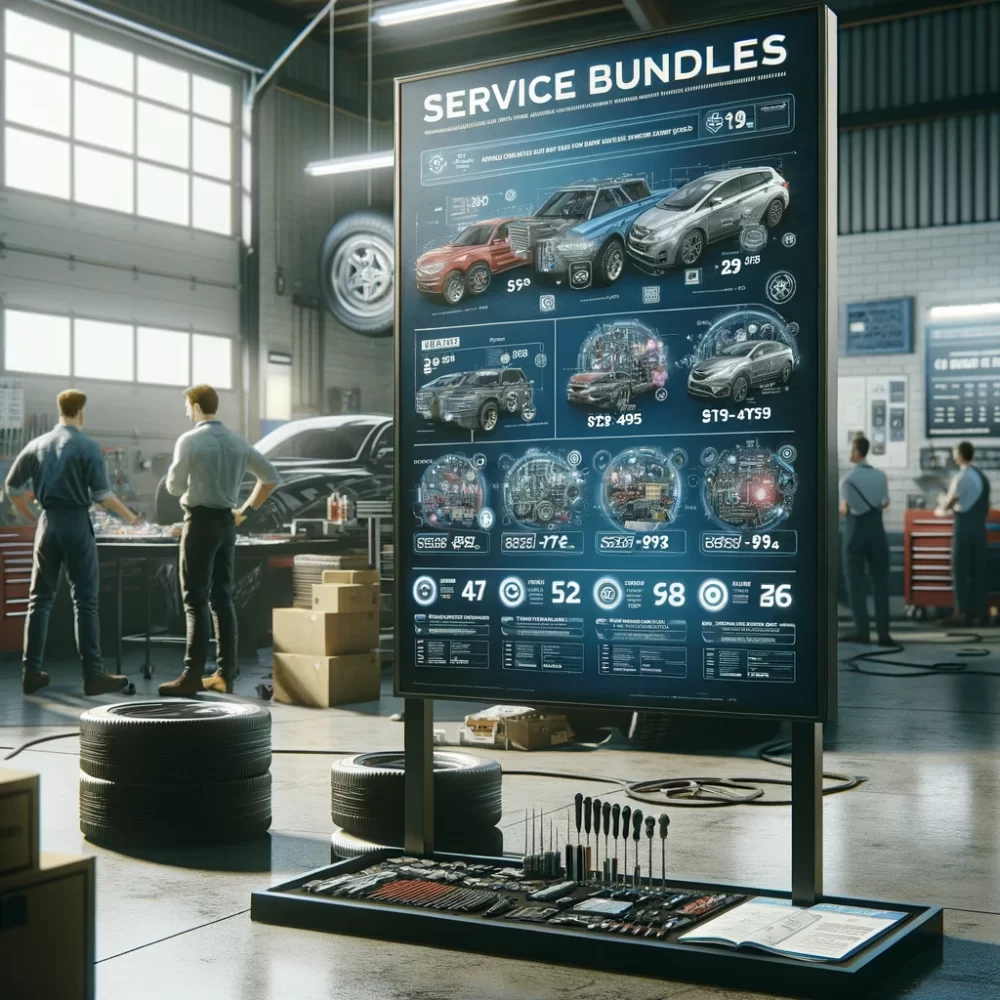Vehicle maintenance is crucial, yet navigating the waters of car service can be daunting, especially with the complexity of modern vehicles. Some service departments exploit consumer trust and lack of automotive knowledge, manipulating situations to increase their profits unfairly. Let’s take a look at ten ways your car service department might be overcharging you and provides insight into avoiding these common pitfalls.
1. Excessive Diagnostic Fees

Car service departments often charge diagnostic fees to identify issues with your vehicle. While paying for diagnostics is standard, the cost can be disproportionately high compared to the effort and time involved, especially if the diagnostic tools are already integrated into modern service practices. These fees are sometimes applied even for simple issues that do not require extensive diagnostics, such as replacing worn brake pads or changing the oil.
Furthermore, these fees can be non-negotiable and might even be charged again if you return for a re-evaluation of the same problem. Consumers are often left with no choice but to pay these fees if they want their vehicles assessed and repaired.
2. Unnecessary Repairs

Technicians may recommend repairs that are not immediately necessary or fabricate issues that don’t exist. This often happens with car owners who have little knowledge about their vehicle’s mechanical needs. For instance, suggesting a complete suspension system replacement when replacing a single worn part would suffice can lead to significantly higher costs.
Additionally, these recommended “preventative” repairs might be suggested far earlier than required by the vehicle’s actual wear and tear, pushed under the guise of avoiding bigger issues down the road, which may never actually occur.
3. Overpriced Parts

Parts markup is a common way for service departments to increase their profitability. A part that costs $50 at wholesale rates could be sold to the consumer for $150 or more. Service centers justify these markups by claiming that they only use “genuine” or “premium” parts, although equivalent parts could be sourced cheaper elsewhere.
This practice not only affects the immediate service bill but also increases the overall cost of maintaining a vehicle over its lifespan, as these costs add up with each visit to the service department.
4. Service Bundles

Service departments often offer maintenance packages that bundle several services together at a seemingly discounted rate. While this can be convenient, many bundled services may include procedures that your car does not need at its current mileage. This not only leads to unnecessary spending but can also result in premature wear from unnecessary procedures.
Consumers might be led to believe they are saving money when in fact, they are paying extra for the convenience and often unnecessary servicing wrapped in these bundles.
5. Ignoring Warranty

Service advisors might fail to inform you that certain repairs could be covered under your vehicle’s warranty or service agreement. This results in customers paying out-of-pocket for work that could have been done for free or at a reduced cost under warranty. This practice is particularly unethical as it exploits customer ignorance about the specifics of their car’s warranty coverage.
Always double-check your warranty details before agreeing to any major repairs, and don’t hesitate to ask directly if a particular issue is covered.
6. High-Priced Labor Rates

Labor costs can vary widely, and some service departments charge higher rates than others in the same area. These elevated labor charges can significantly inflate repair bills. Often, the justification provided relates to the expertise of the technicians or the quality of the service, which may not necessarily be superior.
Comparing labor rates between multiple service providers in your area can help ensure you are not paying above the average rate without corresponding benefits.
7. Misleading Service Timelines

Car service departments sometimes exaggerate the urgency of routine maintenance based on mileage or time intervals that may not align with the manufacturer’s recommendations. This can lead to more frequent servicing than is necessary, increasing overall maintenance costs.
It is essential to refer to your vehicle’s owner manual for the recommended maintenance schedule and be wary of any advice that significantly deviates from these guidelines.
8. Charging for Phantom Repairs

In some disreputable practices, you might be charged for repairs that were never performed. This serious issue of fraud can be difficult to detect if you do not have a basic understanding of car mechanics or if you fully trust the service department without verification.
Requesting detailed reports and itemized bills for all work done can help you verify that you are getting exactly what you paid for.
9. Inflating the Severity of Issues

Sometimes, service centers may present minor issues as catastrophic to push for immediate and expensive repairs. They prey on the fear that failing to act could result in greater damage, leveraging a lack of customer knowledge to justify unnecessary work.
Second opinions are valuable in these situations; getting one can help you avoid paying for repairs that aren’t truly urgent or necessary.
10. Poor Workmanship

In an effort to cut costs, some service departments may employ less skilled technicians, leading to poor workmanship. This can result in ongoing issues with your vehicle, which might necessitate return visits and additional costs. Subpar repairs can affect your car’s performance and even its safety.
To safeguard against this, always read reviews and check ratings of service centers, and if a repair seems to have not been performed correctly, addressing it immediately with the service manager is crucial.
Be Aware of Necessary Services

Arming yourself with knowledge and being aware about the services provided can save you significant money and prevent car service departments from taking advantage of you. Always question unexpected repairs, compare prices, and understand your vehicle’s warranty and maintenance requirements. Remember, an informed customer is a protected customer.
Tamila McDonald is a U.S. Army veteran with 20 years of service, including five years as a military financial advisor. After retiring from the Army, she spent eight years as an AFCPE-certified personal financial advisor for wounded warriors and their families. Now she writes about personal finance and benefits programs for numerous financial websites.





















Discussion about this post